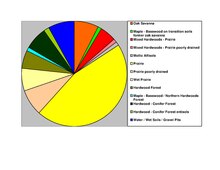In a Minnesota contract for deed, the purchase of property is financed by the seller rather than a bank or lender such as a commercial bank or credit union. The arrangement can benefit buyers and sellers by extending credit to homebuyers who would not otherwise qualify for a loan.
BELOW IS A MINNESOTA CONTRACT FOR DEED ADDENDUM FOR FREE.
It is important you have a knowledgable broker draft the MN contract for deed or WI land contract. I fill out some of the forms for you to get an idea of what the form details but there is a lot more to do and know. If you are thinking of purchasing a contract for deed or selling we are here to help you with over 27 years experience.
MNAR – Addendum to Purchase Agreement_ Contract for Deed Financing (Rev. 08
IMPORTANT INFORMATION ON CONTRACT FOR DEED SALES
MNAR – Important Information About Contracts for Deed – 08_14
2019 MINNESOTA PURCHASE AGREEMENT
MNAR – Purchase Agreement (Rev. 08_2018)-2
WE RECOMMEND A HOME INSPECTION.
MNAR – For Your Protection_ Get a Home Inspection – 6_14
THINGS TO KNOW ABOUT LEAD PAINT. FREE BROCHURE
MNAR – Protect Your Family From Lead in Your Home
LEARN ABOUT RADON AND PROTECT YOUR FAMILY
MNAR – Radon in Real Estate Transactions
PURCHASING A NEW CONSTRUCTION HOUSE YOU WILL WANT TOP REVIEW THE NEW CONTRUCTION PURCHASE AGREEMENT BELOW.
MNAR – Purchase Agreement_ New Construction (Rev. 08_2018)
Minnesota, Made new contract changes to contract for deed laws took effect on August 1, 2024, primarily targeting investor sellers, with new requirements and remedies for buyers, including extended cancellation periods and potential refunds of down payments.
All MN contract for deed transactions will be impacted by the new legislation.
New Minnesota residential contracts for deed
Starting August 1, 2024, all sellers entering into residential contracts for deed in Minnesota will have a non-alterable obligation to pay any delinquent real estate taxes on the property and to record the contract within four months of execution.
Failure to timely do so means that, in the event of a purchaser default, the seller cannot use statutory cancellation to terminate the contract.
In order to avoid the effects of these provisions, it is incumbent on the seller under a contract for deed not involving residential property to include a statement in the contract that
“The property is not residential property.” Under the terms of the new legislation, such a statement will constitute that there is no-statutory-cancellation-of unrecorded-contracts rule does not apply to that particular Minnesota contract for deed.
Any seller under a Residential contract for deed is an Investor seller’s contract seller qualifies for an exemption under one of 11 statutory exceptions. These exemptions from being an investor seller include, most importantly, having owned and occupied the residence for at least one year. They also include being a relative, trust beneficiary, P.R., devisee, or TODD transferee of such owner-occupant; selling to a relative; and selling to a long-term tenant
If the seller on a contract for deed executed on or after August 1 is an investor seller the investor seller is required to provide to the purchaser a detailed disclosure notice that highlights all balloon payments under the contract and the amount that the investor seller paid to acquire the property, and the investor seller is also required to provide to the purchaser a detailed amortization schedule.
Even if there is a separate purchaser agreement before entering into the contract for deed, there is a required, non-waivable 10-day cooling-off period after giving the disclosure before any contract for deed can be executed.
Prior to executing the contract for deed, the purchaser can terminate the transaction without any costs. If the investor seller of the contract is subject to a senior mortgage containing a due-on-sale clause, the investor seller must procure from the mortgagee company to a consent to the sale or an agreement to waive that clause, the Minnesota contract for deed itself must disclose the existence of the mortgage, and the investor seller must represent to the purchaser that the seller has made the requisite arrangements with the mortgagee.
The new legislation contains a prohibition on an investor seller entering into a new contract for deed where the seller or related parties had frequently or repeated Sold on contracts and then cancelled those contracts—This conduct that the statute defines as churning. The legislation designates certain specific prior conduct by an investor seller as creating a rebuttable presumption of churning.
The new legislation remedies for the purchaser on a contract for deed with an investor seller during the term of the contract for deed for:
- churning.
- violations of the disclosure requirements (including material omissions or misrepresentations);
- execution of the contract for deed within the 10-day cooling-off period; and
Violation of any of these new investor seller protections, the contract for deed purchaser has a claim against the investor seller for rescission of the contract for deed during the two-year period after execution of the contract. As part of that remedy, the purchaser will be awarded a judgment against the investor seller for all monies paid under the contract including payments to third parties and the value of improvements made by the purchaser, less the fair rental value of the home during the period the purchaser was in possession, plus other damages and reasonable attorneys’ fees.
The new legislation creates holder-in-due-course protection for the original investor seller’s successors in interest against the purchaser’s rescission claim as long as the contract for deed purchaser has not filed a lis pendens and the successor in interest did not have prior knowledge of the violation, as proved by clear and convincing evidence.
Cancellation of contracts for deed
Any Minnesota contract for deed on residential property executed on or after August 1, that is not recorded within four months of execution cannot be terminated by means of statutory cancellation.
MN Contract for deed by an investor seller, the actual cancellation process is different from that of all other contract for deed cancellations. Before serving the notice of cancellation on the purchaser, the seller must initially give the purchaser a 30-day informal mailed notice of default.
The New notice period under the cancellation statute for an investor seller contract for deed is 90 days, verses 60, days.
The contract for deed in Minnesota is on non-residential property or a seller is not an investor seller and the seller has included a statement in the contract for deed that The property is not residential property or The seller is not an investor seller, this is evidence that all the special investor seller cancellation provisions do not apply.
These statements are included in the actual contract, a title examiner reviewing cancellation documents can pass title where the seller’s cancellation notice was for 60 (and not 90) days.
If the is seller of non-residential property or a seller of residential property who is not an investor seller failed to include such a statement in the original contract for deed, the legislation still allows the seller to cancel the contract without complying with the special investor seller cancellation rules as long as certain care is taken.
The seller or their real estate agent or attorney, as part of their cancellation papers, can file an additional affidavit, based upon personal knowledge, that The property is not residential property or The seller is not an investor seller, either of which statements will constitute prima facie evidence that the special cancellation rules for investor seller contracts did not apply to this particular cancellation.
The new legislation enacts certain new cancellation provisions applicable to all Minnesota contract for deeds regardless of the type of property or nature of the seller.
The reversal of prior law, cancellation papers can now be recorded for any cancellation even if the real estate property taxes are delinquent.
Another benefit to all cancelling sellers on contracts for deed executed on or after August 1, 2024, the seller’s attorneys’ fees that the purchaser must pay as a cost of curing the cancellation has been increased from $500 to $1,000.
Effective for all contract cancellation commenced on or after August 1, 2024, for all contracts for deed whenever executed, the cancellation injunction statute has been amended to provide that the court may award reasonable attorneys’ fees and costs in connection with the grant of a temporary injunction or restraining order only if the seller made an appearance at the hearing for such relief, and if the court issues permanent relief to the purchaser or determines by final order or judgment that the cancellation notice was invalid or the purchaser asserted a valid defense, the court is required to award to the purchaser reasonable attorneys’ fees and costs.
The new law also requires a possible refund of a portion of the purchaser’s down payment by an investor seller who entered into a contract for deed on or after August 1, 2024, and who, within four years of execution of the contract, cancelled the contract for deed.
The investor seller is required to refund to the cancelled contract purchaser that portion of the down payment that exceeded 10 percent of the full contract purchase price.
The seller is allowed to offset against such refund an amount equal to what would have roughly constituted a “hypothetical cure” of the cancellation.
The seller can offset against the sum to be refunded for the down payment in excess of 10 percent of the purchase price the following items
- Unpaid real estate taxes for the period prior to termination.
- unpaid insurance premium and utilities for the period prior to termination incurred by the investor seller
- reasonable costs of repair for damages caused by the purchaser, beyond ordinary wear and tear, incurred by the investor seller
- Seller’s attorneys’ fees incurred in the cancellation not to exceed $1,000
- one-half of unpaid monthly contract installment payments (exclusive of balloon payments) accrued prior to termination
FIND CONTRACT FOR DEED HOMES AVAILABLE
Where can I find a company to purchase any home I want to pick out?
There is a program with MN lakeplace co to purchase any home of your choice.
How this program works is the buyer can pick out any home of choose preferably with in an hour of the twin cities metro area.
- The buyer will have to put down 10-25% of the sale price of the home.
- credit not an issue.
- NO prepayment penalties buyers can refinance or sell home any time.
- Payments are made automatically from buyers bank to lenders bank so there should not be any late fees.
- 651.334.8312 Steve Vennemann for all contract for deed questions feel free to text us anytime.
Facts and features
A contract for deed, also known as a “Owner financing,” “land contract,” or “installment land contract,”Seller financing” is a transaction in which the seller finances the sale of his or her own property. In a contract for deed sale in Minnesota, the buyer agrees to pay the purchase price of the property in monthly installments. The buyer immediately takes possession of the property, often paying 10 to 20% down of the sale price of the property, while the seller retains the legal title to the property until the contract is fulfilled.
The buyer has the right of occupancy Immediately. In Minnesota, the Contract for deed buyer has the right to claim a homestead property tax exemption. The buyer finances the purchase with assistance from the seller, who retains a security in the property.
The contract for deed is a much faster and less costly transaction to execute than a traditional, purchase-money mortgage. In a Minnesota contract for deed, there are no origination fees, formal applications, or high closing costs. Another important feature of a contract for deed is that seizure of the property in the event of a default is generally faster and less expensive than seizure in the case of a traditional mortgage. If the buyer defaults on payments in a typical contract for deed, the seller may cancel the contract, resume possession of the property, and keep previous installments paid by the buyer as liquidated damages. Under these circumstances, the seller can reclaim the property without a foreclosure sale or judicial action. Usually in Minnesota the contract can be cancelled after 60 days of non payment. Please seek legal advice on this.
Because the buyer in a contract for deed does not have the same safeguards as those with a mortgagor in a purchase-money mortgage, the contract for deed may appear to be essentially a rent-to-own arrangement. However, in a typical contract for deed, the buyer becomes responsible for the obligations of a mortgagor in possession, such as maintaining the property and paying property taxes and casualty insurance. Unless prohibited by the contract, either party may sell his or her interest in the contract. The buyer may keep any equity above what the buyer owes to the seller and sell his or her interest in the property.
Positives of a contract for deed
Homebuyers like contract for deed purchases for several reasons. This method may be especially appealing to homebuyers who do not qualify for a mortgage, such as people who work cash jobs and are therefore unable to prove their ability to make payments.
Buyers who have filed for Bankruptcy protection.
Second homes-investment properties vacation homes.
Lack of time at current employment. Most lenders will want 2 years at a job or if self employed.
Relocation.
Since the contract for deed process is significantly shorter than the mortgage-approval process, it may attract buyers who face time constraints or have limited options, such as people who are losing their homes to foreclosure. First-time homebuyers who lack experience in the market or individuals who are wary of traditional financial organizations may also choose a contract for deed because of the simplicity of the buying process.
Relocation from another state.
Minnesota law states that they require the buyers or sellers in all contracts for deed to record the sale in the office of the county recorder or registrar of titles within a specified time period.
The seller must set forth the terms of the contract in a purchase agreement. It is important that both parties fully understand the provisions of the contract, because once the purchase agreement has been signed, the options available to both the seller and buyer are limited.
-
- The buyer should know whether he or she is responsible for property tax payments and insurance and whether the contract for deed includes a balloon payment. If it does include one, the buyer should be certain that he or she would be eligible for a mortgage to cover the payment when it comes due.
-
- The buyer should also make sure that the seller is the true owner of the house by checking with the county recorder’s office to see who is listed as the registered owner. If the seller still has a mortgage encumbering the property or is responsible for paying the taxes or insurance,
- The buyer should ask the seller for a Truth in Sale of Housing report to determine the condition of the house. This report is required in Minneapolis and St. Paul and some other cities. In cities where it is not required, the Buyer should find his or her own inspector to assess the condition of the home.
The buyer should record the contract immediately with the county recorder’s office or the registrar of titles. Recording the contract will help prove the buyer’s possession of the property and protect him or her from post-contract encumbrances placed on the property by the seller. We always recommend using a title company or law office for the closing they will record the deed for the buyer and seller.
To purchase real estate in Minnesota or Wisconsin the buyers and sellers should use
BoardWalk Premier Realty. 651.334.8312
No Mortgage Registration Tax (MRT) is due on the recording of a contract for deed because a contract for deed is exempted under the MRT law. View the law, Minnesota Statutes, Chapter 287.04 subdivision(d).
Deed following Contract for Deed
Deed Tax is due on the conveyance of legal ownership of real property with a deed following the satisfactory completion of the terms of a contract for deed. The deed that conveys legal ownership of the property from the grantor to the grantee is taxable. The basis of the Deed Tax is the total consideration for the conveyance. In most cases, the total consideration is equal to the principal amount of the purchase price agreed upon at the time of the sale.
Note: The basis of the Deed Tax does not include the interest charged and paid as part of the installment payments under the contract agreement.
Completion of Contract for Deed
Example of a Minnesota Contract for deed execution.
(A) Steve sells real property to Joe for $ 200,000 on a contract for deed.
Terms: $ 20,000 down payment
$ 180,000 (6% interest amortized over 30 years $ 1079.19 plus taxes and insurance monthly for 60 months)
When the contract is “paid in full” and Paul provides a warranty deed to Joe. Deed Tax is due on the $ 200,000 purchase price.
Cancellation of contract for deed
No Deed Tax is due on the cancellation of a contract for deed. It is included as an exception to the tax under
Sec. 559.21 MN Statutes
The result of the cancellation is that the grantor retains legal ownership of the property.
Assignment of grantor’s (vendor’s) interest with warranty or quit claim deed
Under a contract for deed, the grantor retains the legal title to the real property until the purchase price is paid in full and the other terms of the contract are completed.
Before a contract is paid off, the grantor (vendor) may choose to assign its contract rights to a third party.
Assignment of a grantor’s right to receive the payments is exempt from Deed Tax because no real property is conveyed. However, if the grantor issues a deed to the property along with the assignment, the conveyance document is subject to tax. Tax is based on the price paid for the assignment less the current contract for deed principal balance.
Under a contract for deed, the grantee (vendee) generally has the legal right to possess and use the property during the course of the contract and to receive legal title to the property when the terms of the contract are completed.
The assignment of a grantee’s interest in a contract for deed is exempt from the deed tax if the only thing conveyed is the right to make the payments and occupy the property during the term of the contract. However, if the grantee issues a deed to the property along with the assignment, the conveyance document is subject to the Deed Tax. Tax is based on the price paid for the assignment less the current contract for deed principal balance.
What is the tax rate for Minnesota contract for deed sales. 3.3% per $1000 is what the seller will pay when selling their property in Minnesota.
What types of properties can I buy on a contract for deed?
Single family, Town homes, Condo, Lake properties, Cabins, Investment, Waterfront, Commercial, Land
Farms,Acreage,New Construction
Virtually every type of property available can be purchased on a contract for deed. Feel free to browse our inventory of contract for deed properties. We have 100s of properties to view daily. Contact us about our contract for deed financing.
What are some of my other options?
If you have little money down you may try to see if the seller is willing to offer Rent to own.
Rent to own : Means the Minnesota home owner has promised to sell the property to the tenant for a certain price within a certain time frame. Often a portion of the rent paid will go toward either the purchase price or buyer’s closing costs associated with the purchase in the form of a rent credit. Tenant maybe responsible for taxes and insurance.
Lease options:
Another Option you may want to try.
A lease option is also called a Lease With the Option to Purchase is a type of contract used in both residential and commercial real estate. In a lease–option, a property owner and tenant agree that, at the end of a specified rental period for a given property, the renter has the option of purchasing the property. The tenant usually pays all taxes and utilities.
Owner financing:
With a traditional mortgage, you borrow money from a bank to pay for the property. Then, you make payments back to the bank to pay off the loan. With owner financing, you make arrangements to pay the owner in installments, typically of principal and interest, until you’ve paid off the purchase price of the property. It’s very similar to a contract for deed. It depends on how you draft the contract/agreement.
Seller financing:
Seller financing is just what it sounds like: instead of the buyer getting a loan from the bank, the person selling the property lends the buyer the money for the purchase. The buyer and seller execute a promissory note providing an interest rate, repayment schedule, payment amount, length of the contract and consequences of default.
What is the disadvantages of a contract for deed?
Default and Foreclosure Risks
A buyer risks losing the property and all money paid toward the property if he falls behind on the monthly payments. One disadvantage of a contract for deed to the seller is that clearing the title may take time and money if the buyer defaults on the contract. The seller’s in Minnesota can foreclose on the property in 60 days if the buyer defaults, and the buyer has no recourse against the seller.”Seek legal advice on this”. The buyer does have the right to sell the property before the property goes back to the seller. The buyer will want a quick closing.
Advantage to buyer
If you can’t qualify for a mortgage because of a past bankruptcy, your income,Self Employed,Low credit scores. or employment history, a contract for deed could be a good alternative. If the seller is willing to sell on a cd then you are good to go, that’s all you need to go ahead. You may have more freedom negotiating a down payment, but in most cases the seller will want 10% to 20% down of the sale price of the property to do a cd, and your closing costs are a lot lower than a mortgage, No origination fees and other expenses involved in taking out a mortgage. Another advantage is that if you default on your mortgage, a lender could demand you pay off the entire loan, even if you make up the payments. A seller using a contract of deed doesn’t have that right, unless you agree to include that as a clause in the contract.
Disadvantages to seller:
The biggest disadvantage of selling a property this way is that the property won’t be off paid off for 3-7 years, which may not suit your investment strategy. You’ll also be waiting until the contract is finished to receive all of your money, instead of the immediate payment you’d get from a mortgage sale.
Advantage to sellers:
1. No appraisal
2. No financing contingency to worry about – you approve the Buyer’s credit.
3. Quicker settlement – no waiting weeks for lender approval.
4. Cash flow
5. No more late night calls from renters . The buyers take over repairs and up keep.
Advantages to seller:
If you’re the seller, a contract for deed offers you a way to cash flow your property and usually get a higher return on your money than a bank. This opens up a larger pool of potential purchasers for your property. The process is usually quicker than a mortgage sale, too.Most closings can closes as quick as a week with BoardWalk Premier Realty. If the buyer goes into default, you can terminate the contract promptly, without taking the time for all the legal procedures required for a mortgage holder to foreclose on a home.
Disadvantage for seller:
1. If the Seller has a mortgage The Seller remains liable on the loan until it is paid. To protect the Seller, the Contract for Deed provides that upon default, the Buyer’s interest terminates and all sums previously paid are rent. The Seller can evict the Buyer and take the property back.
2. The loan continues on the Seller’s credit report. This could present issues for the Seller to qualify on a new home. Most new lenders will count at least 75% of the Buyer’s payment as income to the Seller for qualifying purposes. If you are planning on buying a house soon, check with your new lender for details.
3. This risk of non-payment is similar to the risk assumed by any landlord. The contract for deed has an advantage over a lease because the Buyer is paying the full cost of the mortgage, homeowner fees and maintenance. In addition, the Buyer has paid closing costs and has an ownership interest. Unlike a lease, there are no maintenance, management and move-out hassles.
Disadvantages to buyer:
1. Three to Seven years is a minimum recommended term. This allows time for a refinance. It gives time for the property to appreciate. The Buyer can earn more money or resolve credit issues to qualify.
2. If the Buyer defaults, the Contract for Deed terminates the Buyer’s interest and treats all payments as rent. The defaulting Buyer could stand to lose his investment.
If you would like to know more about contract for deed call us we can help you buy or sell a property on a contract for deed in Minnesota or a land contract in Wisconsin.
Where do I record my Contract for deed after I purchase my Home in Minnesota?
Contract for deed Hennepin County is a county in Minnesota. As of the 2010 census the population was 1,152,425. It is the most populous county in Minnesota and the 35th-most populous county in the United States; more than one in five Minnesotans live in Hennepin County. Its county seat is Minneapolis, the state’s most populous city. The county is named in honor of the 17th-century explorer Father Louis Hennepin.
HENNEPIN COUNTY CONTRACT FOR DEED HOMES
Hennepin County is included in the Minneapolis-St. Paul-Bloomington, MN-WI Metropolitan Statistical Area.
The center of population of Minnesota is in Hennepin County, in the city of Minneapolis.
Hennepin County Recorders office for the following cities.
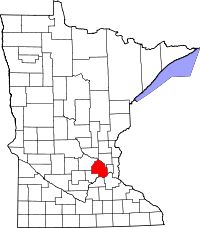
Hennepin County is the largest county in Minnesota. Minneapolis Contract for deed is part of the twin cities metro area.
B
- Bloomington, Minnesota
- Brooklyn Center,Minnesota
C
- Champlin, Minnesota
- Chanhassen,
- Corcoran, Minnesota
- Crystal, Minnesota
D
- Dayton,Minnesota
- Deephaven, Minnesota
E
- Eden Prairie, Minnesota
- Edina, Minnesota
- Excelsior,Minnesota
G
- Golden Valley,Minnesota
- Greenfield,Minnesota
- Greenwood,Minnesota
H
- Hanover, Minnesota
- Hopkins, Minnesota
I
- Independence,
L
- Long Lake, Minnesota
- Loretto, Minnesota
M
- Maple Grove,Minnesota
- Maple Plain, Minnesota
- Medicine Lake, Minnesota
- Medina, Minnesota
- Minneapolis largest city in Minnesota.
- Minnetonka Beach, Minnesota
- Minnetonka, Minnesota
- Minnetrista, Minnesota
- Mound, Minnesota
N
- New Hope,Minnesota
O
- Orono, Minnesota
- Osseo, Minnesota
P
- Plymouth, Minnesota
R
- Richfield, Minnesota
- Robbinsdale,Minnesota
- Rockford, Minnesota
- Rogers, Minnesota
S
- St. Anthony, Minnesota
- St. Bonifacius,Minnesota
- St. Louis Park, Minnesota
- Shorewood,Minnesota
- Spring Park, Minnesota
T
- Tonka Bay, Minnesota
W
- Wayzata,Minnesota
- Woodland,Minnesota
Recorder – Registrar of Titles Hennepin County
Phone: 612.348.5139
Skyway level – Government Center
300 South 6th Street
Minneapolis, MN 55487-0055
M-F, 8 a.m. to 4:30 p.m.
Contract for deed Ramsey County is a county located in Minnesota. As of the 2010 census, the population was 508,640, making it the second-most populous county in Minnesota. Its county seat is St. Paul, which is also Minnesota’s state capital. The county was founded in 1849 and is named for Alexander Ramsey (W), the first governor of the Minnesota Territory.
FIND RAMSEY COUNTY CONTRACT FOR DEED HOMES
Ramsey County is included in the Minneapolis–Saint Paul-Bloomington, MN-WI Metropolitan Statistical Area. It is the smallest and most densely populated county in Minnesota, as well as one of the most densely populated counties in the United States
Ramsey County Recorders office
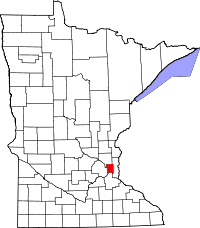
Saint Paul Contract For Deed the 2nd largest city in Minnesota and is part of the twin cities metro area.
A
- Arden Hills, Minnesota
B
- Blaine, Minnesota
F
- Falcon Heights, Minnesota
G
- Gem Lake, Minnesota
L
- Lauderdale, Minnesota
- Little Canada, Minnesota
M
- Maplewood, Minnesota
- Mounds View, Minnesota
N
- New Brighton, Minnesota
- North Oaks, Minnesota
- North St. Paul, Minnesota
R
- Roseville, Minnesota
S
- St. Anthony, Minnesota
- Saint Paul, Minnesota
- Shoreview, Minnesota
- Spring Lake Park, Minnesota
V
- Vadnais Heights, Minnesota
W
- White Bear Lake, Minnesota
Contract for deed Washington County is a county located in Minnesota. As of the 2010 census, the population was 238,136, making it the fifth-most populous county in Minnesota. Its county seat is Stillwater. The largest city in the county is Woodbury, which had a population of 61,961 at the 2010 census. The county was established in 1849.
Washington County is included in the Minneapolis-St. Paul-Bloomington, MN-WI Metropolitan Statistical Area.
FIND WASHINGTON COUNTY CONTRACT FOR DEED HOMES
Washington County Recorders office

A
- Afton, Minnesota
B
- Bayport, Minnesota
- Birchwood Village, Minnesota
C
- Cottage Grove, Minnesota
D
- Dellwood, Minnesota
F
- Forest Lake, Minnesota
G
- Grant, Minnesota
H
- Hastings, Minnesota
- Hugo, Minnesota
L
- Lake Elmo, Minnesota
- Lake St. Croix Beach, Minnesota
- Lakeland Shores, Minnesota
- Lakeland, Minnesota
- Landfall, Minnesota
M
- Mahtomedi, Minnesota
- Marine on St. Croix, Minnesota
N
- Newport, Minnesota
O
- Oak Park Heights, Minnesota
- Oakdale, Minnesota
P
- Pine Springs, Minnesota
S
- St. Marys Point, Minnesota
- St. Paul Park, Minnesota
- Scandia, Minnesota
- Stillwater, Minnesota
W
- White Bear Lake, Minnesota
- Willernie, Minnesota
- Woodbury, Minnesota
Contract for deed Anoka County is the fourth-most-populous county in Minnesota. As of the 2010 census, the population was 339,534. The county seat and namesake of the county is the City of Anoka, MN
The largest city in the county is the City of Blaine, the thirteenth-largest city in Minnesota and the eighth-largest Twin Cities suburb.
ANOKA COUNTY CONTRACT FOR DEEDS
Anoka County comprises the north portion of the Minneapolis-St. Paul-Bloomington, MN-WI Metropolitan Statistical Area, the largest metropolitan area in the state and the sixteenth-largest in the United States with about 3.55 million residents.
Anoka County Recorders office
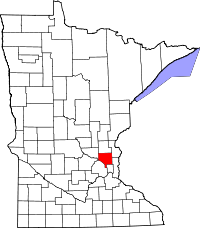
A
- Andover, Minnesota
- Anoka, Minnesota
B
- Bethel, Minnesota
- Blaine, Minnesota
C
- Centerville, Minnesota
- Circle Pines, Minnesota
- Columbia Heights, Minnesota
- Columbus, Minnesota
- Coon Rapids, Minnesota
E
- East Bethel, Minnesota
F
- Fridley, Minnesota
H
- Ham Lake, Minnesota
- Hilltop, Minnesota
L
- Lexington, Minnesota
- Lino Lakes, Minnesota
N
- Nowthen, Minnesota
O
- Oak Grove, Minnesota
R
- Ramsey, Minnesota
S
- St. Francis, Minnesota
- Spring Lake Park, Minnesota
Contract for deed Dakota County is the third-most populous county in Minnesota. As of the 2010 census, the population was 398,552. The county seat is Hastings.Dakota County is named after the Dakota Sioux tribal bands who settled in the area.
DAKOTA COUNTY CONTRACT FOR DEEDS
Dakota County is included in the Minneapolis–St. Paul–Bloomington, MN–WI Metropolitan Statistical Area, the sixteenth largest metropolitan area in the United States with about 3.3 million residents. The county is bordered by the Minnesota and Mississippi Rivers on the north, and the state of Wisconsin on the east.
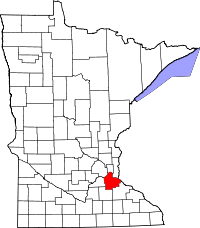
A
- Apple Valley, Minnesota
B
- Burnsville, Minnesota
C
- Coates, Minnesota
E
- Eagan, Minnesota
F
- Farmington, Minnesota
H
- Hampton, Minnesota
I
- Inver Grove Heights, Minnesota
L
- Lakeville, Minnesota
- Lilydale, Minnesota
M
- Mendota Heights, Minnesota
- Mendota, Minnesota
- Miesville, Minnesota
N
- New Trier, Minnesota
- Northfield, Minnesota
R
- Randolph, Minnesota
- Rosemount, Minnesota
S
- South St. Paul, Minnesota
- Sunfish Lake, Minnesota
V
- Vermillion, Minnesota
W
- West St. Paul, Minnesota
Contract for deed Chisago County is a county located in Minnesota. As of the 2010 census, the population was 53,887. Its county seat is Center City. The county’s name comes from Chisago Lake.
CHISAGO COUNTY CONTRACT FOR DEEDS
Chisago County is included in the Minneapolis-St. Paul-Bloomington, MN-WI Metropolitan Statistical Area as well as the East Central Minnesota region.
Chicago County Recorders office

- Chisago City, Minnesota
- Harris, Minnesota
- Lindström, Minnesota
- North Branch, Minnesota
- Rush City, Minnesota
- Shafer, Minnesota
- Stacy, Minnesota
- Taylors Falls, Minnesota
- Wyoming, Minnesota
Townships
- Amador Township
- Chisago Lake Township
- Fish Lake Township
- Franconia Township
- Lent Township
- Nessel Township
- Rushseba Township
- Shafer Township
- Sunrise Township
- Wyoming Township
Contract for deed Pine County is a county located in Minnesota. As of the 2010 census, the population was 29,750.Its county seat is Pine City. The county was formed in 1856 and organized in 1872.
A portion of the Mille Lacs Indian Reservation is in this East Central Minnesota county.
PINE COUNTY CONTRACT FOR DEEDS
Pine County Recorders office

A
- Askov, Minnesota
B
- Brook Park, Minnesota
- Bruno, Minnesota
D
- Denham, Minnesota
F
- Finlayson, Minnesota
H
- Henriette, Minnesota
- Hinckley, Minnesota
K
- Kerrick, Minnesota
P
- Pine City, Minnesota
R
- Rock Creek, Minnesota
- Rutledge, Minnesota
S
- Sandstone, Minnesota
- Sturgeon Lake, Minnesota
W
- Willow River, Minnesota
Contract for deed Scott County is a county in Minnesota. As of the 2010 census, the population was 129,928.Its county seat is Shakopee. The county was organized in 1853 and named in honor of General Winfield Scott.
SCOTT COUNTY CONTRACT FOR DEEDS
Scott County is part of the Minneapolis-St. Paul-Bloomington, MN-WI Metropolitan Statistical Area. It is a member of the Metropolitan Council, and shares many of the council’s concerns about responsible growth management, advocating for progressive development concepts such as clustering, open-space design, and the preservation of open space and rural/agricultural land.
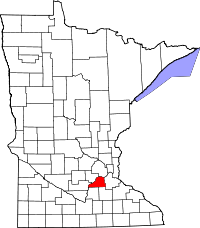
Scott County Recorders office
B
- Belle Plaine, Minnesota
E
- Elko New Market, Minnesota
J
- Jordan, Minnesota
N
- New Prague, Minnesota
P
- Prior Lake, Minnesota
S
- Savage, Minnesota
- Shakopee, Minnesota
Contract for deed Wright County is a county in Minnesota. As of the 2010 census, the population was 124,700. Its county seat is Buffalo. The county was founded in 1855.
Wright County is part of the Minneapolis-St. Paul-Bloomington, MN-WI Metropolitan Statistical Area.

Wright County Recorders Office
- Albertville, Minnesota
- Annandale, Minnesota
B
- Buffalo, Minnesota
C
- Clearwater, Minnesota
- Cokato, Minnesota
D
- Dayton, Minnesota
- Delano, Minnesota
H
- Hanover, Minnesota
- Howard Lake, Minnesota
M
- Maple Lake, Minnesota
- Monticello, Minnesota
- Montrose, Minnesota
O
- Otsego, Minnesota
R
- Rockford, Minnesota
S
- St. Michael, Minnesota
- South Haven, Minnesota
W
- Waverly, Minnesota
For More resources on Contract for deeds .
Contract for deeds
- Must include either a well statement signed by the buyer or a WDC and the $50 fee.
- SDT not required on a Contract for Deeds.
- A value of more than $1,000 of consideration must be accompanied by an eCRV (Minnesota Statute 272.115).
* Recommended and prepared in part by the Minnesota County Recorder’s Association. Revised: 08-01-2008
Mortgage registry and deed tax calculator
Mortgage registry tax
Mortgage registry tax (MRT) is paid when recording a mortgage. The rate is 0.0024* of the purchase price (Example: $100,000 X 0.0024 = $240.00 MRT).
If you need to claim an exemption from MRT or document the basis of your tax, use the state’s MRT1 form.
Learn more about MRT at Department of Revenue MRT.
State deed tax
State Deed tax (SDT) is paid when recording an instrument conveying Minnesota real property. The rate is 0.0034* of the purchase price (Example: $100,000 X 0.0034 = $340.00 SDT).
The minimum SDT in Hennepin County is $1.70 for deeds with consideration of $500 or less.
Starting January 1, 2020, the minimum SDT of $1.70 for deeds with consideration changes from $500 or less to $3,000 or less.
If you need to claim an exemption or the minimum tax, use the state’s DT1 form.
Learn more about SDT at Department of Revenue SDT.
* Hennepin County adds an additional .0001 to their MRT and SDT for an environmental response fund per Minnesota Statute 383A.80.
These are the Leaders in Minnesota Owner financing.
Home ownership is with your reach..
Let us know what you are seeking and we will help you find it.
BoardWalk Premier Realty
Steve Vennemann


